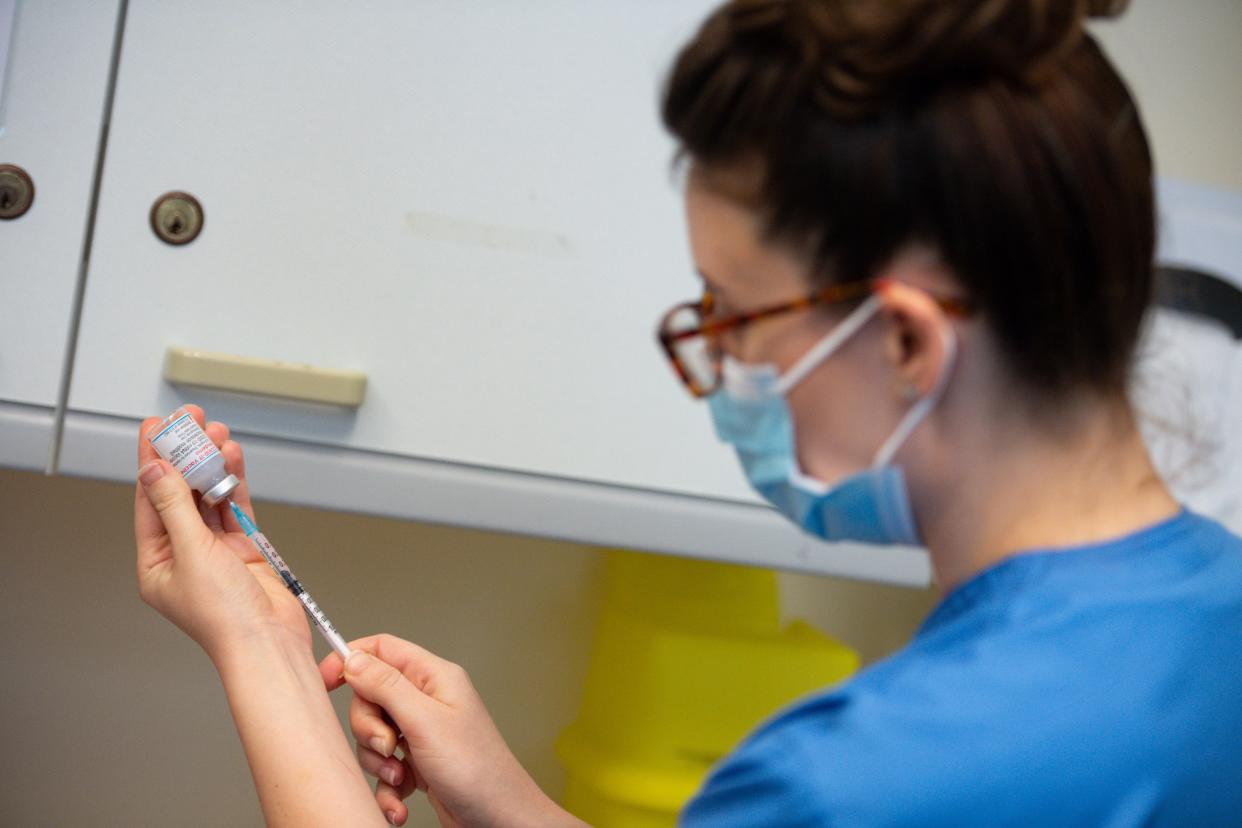Blood clot risk from Covid ‘significantly higher’ than from vaccine - study

The vaccine is less likely to cause a blood clot than Covid
(PA Wire)The risk of developing a blood clot from Covid is far higher than the it is from being vaccinated, a study suggests.
Scientists from the University of Oxford have said the risk of cerebral venous thrombosis (CVT) is around eight to 10 times higher after catching the virus than getting vaccinated with BioNTech/Pfizer, Moderna or Oxford/AstraZeneca Covid-19 jabs.
The researchers said this type of blood clot is more common after Covid-19 than in any of the comparison groups, with 30 per cent of these cases occurring in the under-30s.
These findings come as many European countries have restricted the use of the AstraZeneca jab in younger people following reports of these rare blood clots.
UK medicines regulator the MHRA (Medicines and Healthcare products Regulatory Agency) has said benefits of the AstraZeneca vaccine continue to outweigh any risks, but added that under-30s would be offered an alternative jab.
Watch: Should I be worried about the AstraZeneca Covid-19 vaccine?
Up to March 31, the MHRA received 79 reports of blood clots accompanied by low blood platelet count, all in people who had their first dose of the vaccine.
Of these 79, 44 were cases of CVT.
The paper from Oxford University scientists, which has yet to be peer-reviewed, looked at TriNetX – a US electronic health records database with more than 81 million participants which included information on those who have had Covid-19 as well as people who had received Pfizer or Moderna vaccines.
For the AstraZeneca vaccine, the researchers looked at data from the MHRA as well as the European watchdog the European Medicines Agency (EMA).

Led by Professor Paul Harrison and Dr Maxime Taquet from Oxford University’s department of psychiatry, the researchers counted the number of CVT cases diagnosed in the two weeks following diagnosis of Covid-19, or after the first dose of a vaccine.
Prof Harrison, who is professor of psychiatry and head of the translational neurobiology group at the University of Oxford, said the team had reached two important conclusions, saying: “Firstly, Covid-19 markedly increases the risk of CVT, adding to the list of blood-clotting problems this infection causes.
“Secondly, the Covid-19 risk is higher than seen with the current vaccines, even for those under 30; something that should be taken into account when considering the balances between risks and benefits for vaccination.”
Based on data from more than 500,000 Covid-19 patients, the experts calculated the occurrence of CVT was 39 in a million people.
Among those who had a vaccine made by Pfizer or Moderna, the occurrence of CVT was around four in a million, while for the AstraZeneca vaccine, the occurrence was about five in a million after the first dose.
Watch: Coronavirus peaks examined across the UK
Read More
Government denies plan to halt rapid coronavirus testing
Tokyo Olympics could be cancelled if Japan’s cases continue to rise
Talking Point: Are you in favour of Covid passports for events?

 Yahoo News
Yahoo News 
